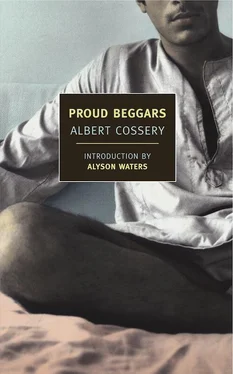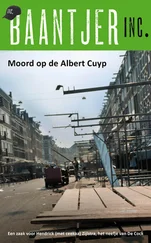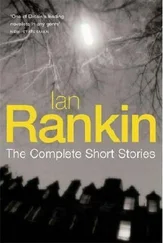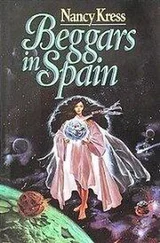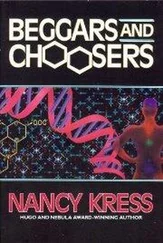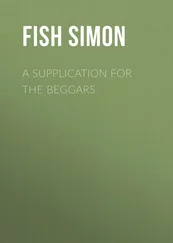“Where’s the barber? I want a shave.”
“That’s me,” said Gohar, standing up. “Would your Excellency please be so kind as to sit down.”
The man collapsed in the chair and fell asleep right away. They could hear him snoring.
“Let’s go,” said Gohar.
“I would love a glass of tea,” said El Kordi. “All these emotions have made me thirsty.”
Arm in arm the three men proceeded toward the café lights, joking and laughing about the pitiful debt collector whom El Kordi had seen at the brothel. They had already forgotten the crime, Gohar more completely than the others.
IT WAS eleven in the morning. Seated behind his desk in the Ministry of Public Works, El Kordi was growing bored watching the flies buzz about. The large room, lit by high windows and containing several desks behind which other clerks were laboring, was as odious to him as a prison. It actually was a sordid kind of prison, where one was in eternal contact with common-law prisoners. El Kordi would have accepted being in prison, but in a private cell, as a political prisoner. His rancor against such overcrowding derived from noble, aristocratic instincts of which he was not at all aware. He was embittered by the lack of privacy that became intolerable in the long run. How could he reflect at ease on problems of universal importance in front of these dusty, congealed figures devoted to unending slavery? To protest against this injustice, El Kordi abstained from practically all work, intending thereby to show his disapproval and his spiritual independence. But since no one noticed his protest, he grew bored.
It was not just laziness with El Kordi; his decision was due in large part to the futility of giving himself over to work that any child could do. To be here, cooped up in this funereal room, in the company of his shabby colleagues, when life demanded other things of him, made him feel like the victim of a cruel joke. What had he done to deserve such punishment? El Kordi believed himself destined for hopeless, but no less glorious, causes! Seeing himself reduced to this nothingness, to this stupid, vain, bureaucratic routine, he doubted his fate. Actually, he didn’t know what else he could do. When he was prey to despair, as he was now, he easily imagined the people’s misery and the frightful oppression of which he was a victim; he then enjoyed dreaming about a brutal and bloody revolution. But when he was once again in the street mingling with the crowd, the people’s misery became a myth, an abstraction, and it lost all of its explosive virulence. He felt especially attracted to the picturesque details of this poverty, to the grandeur of its inexhaustible humor, and he immediately forgot his savior’s mission. By some inexplicable mystery, he found such an intense faculty for joy among this miserable people and such a strong will to happiness and security that he had come to think that he was the only ill-fated man on earth. Where were the ravages of oppression? Where was the unhappiness? It was as if all the images that he had wrought on the subject of this misery receded into nothingness like phantoms engendered by sleep. El Kordi had to strain to find the pitiful element indispensable to his revolt. Just when he should have been sad and choked with tears, an immense laugh shook him.
All this wasn’t serious. El Kordi would have liked a people who measured up to him: sad and animated by vengeful passions. But where to find them?
His young blood boiling with impatience, he dreamed of being a man of action. This ridiculous job, which he did for starvation wages, wasn’t designed to quench his thirst for social justice. He was so disgusted by it that most of the time he farmed it out to his more unfortunate colleagues — married men and fathers of numerous children — for a moderate payment. Thus, at the end of each month a paradoxical spectacle took place: the colleagues who had done some work for El Kordi came to collect their meager fees in a line before his desk. At such moments, El Kordi assumed the irritated air of a boss paying his workers. All the same, with the little money left over, he managed to survive. He led a life of extreme poverty, but decent and, he thought, very dignified. Keeping up appearances was his constant worry. For example, when he was obliged to live on boiled beans, he would tell his grocer that he was sick of eating chicken and that a common dish would surely excite his jaded appetite. The grocer wasn’t fooled, but honor was saved.
From his chair, he distractedly contemplated his sorry colleagues and thought he saw the chains of slavery everywhere. These constraints imposed on his freedom several hours each day made him extremely sensitive to the sorrows of the oppressed masses of the universe. He stirred in his chair and sighed loudly. Some of the slaves, seriously occupied with their work, raised their heads and gave him a look full of incomprehension. El Kordi answered these sad looks with a kind of aggressive pout. He despised all of them. The revolution would not be carried out by this wretched breed. They’d been there several years — how many, no one could say — rooted to their chairs, covered with dust, with their mummified faces. A veritable museum of horrors. At the thought that one day he might be like them, El Kordi shivered and felt like leaving at once. But then he told himself that it wasn’t yet a decent hour to go, and so he stayed on quietly being bored.
To escape the depressing influence of his colleagues, El Kordi tried to take refuge in his amorous reveries. He hadn’t seen Naila since the night of the crime, that is, for three days, and he had begun to feel the baneful effect of enforced chastity. The brothel was still guarded by the police; to venture there was very risky. El Kordi thought of the young girl and pictured her sick and solitary; he imagined her at death’s door asking to see him, pronouncing his name with her last breath. For a long moment he delighted in this pathetic vision; then the desire to write Naila a letter suddenly seized him. He would tell her of his love, and, at the same time, of the people’s suffering. Unfortunately, it was impossible to execute his project: he couldn’t find his pen anywhere. He then recalled that his supervisor had taken it away from him awhile ago, under the false pretense that it was growing rusty from lack of use. At first, El Kordi felt anger overtake him at the memory of this outrage, but very quickly he felt profound relief; he now had an excuse not to write the letter; besides, Naila didn’t know how to read.
Flies were buzzing about the room and landing on his nose. El Kordi tried to catch several in order to submit them to a cruel fate, but they thwarted him. He was so dazed that he lacked the agility necessary for this kind of relaxation. At the end of his resources, he took hold of the newspaper on his desk and looked it over for the tenth time. Everywhere, headlines proclaimed that the whole world was arming itself with a view to a future war. In the newspaper, it all had the appearance of something distant, without direct repercussions on his daily life. It was proclaimed with such indecency that one couldn’t believe the reality of the thing. But at the moment, El Kordi was in such a state of despondency that he was attentive to the slightest danger: for the first time, the announcement of all this weaponry seemed to conceal a concrete and monstrous reality. They weren’t simply words printed in a newspaper. The accumulation of such war potential did not appear to be directed only against humanity but almost against his very security. It was as if they were aiming directly at him by the obscene display of all these marching armies. A terrible anguish overwhelmed him. So the massacre was premeditated: they were after his skin. And what was he doing all this time? Vulnerable and defenseless, he was tranquilly seated behind his desk. He had to do something, and the first thing was to buy a gun. In a universe where everyone was armed, it was insane to remain empty-handed, waiting for them to kill you. He had to return their fire, not remain passive. “I must talk to Gohar about this,” he said to himself. But the thought of Gohar armed with a machine gun made him smile. It was his first smile of the day.
Читать дальше
